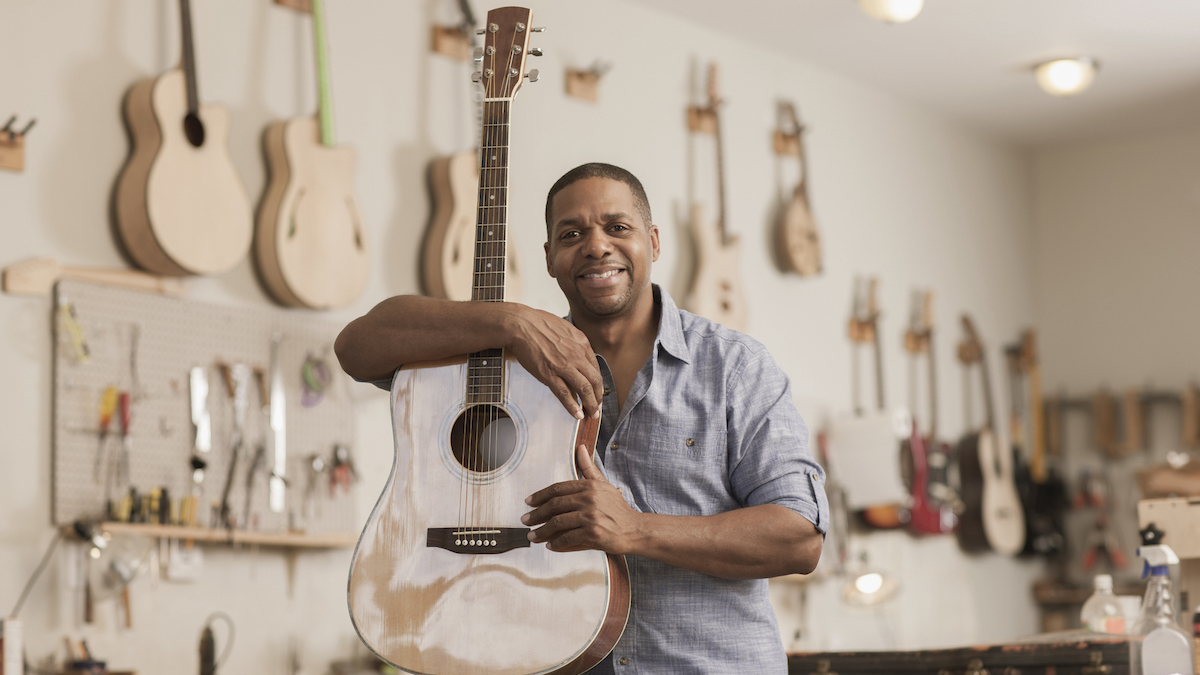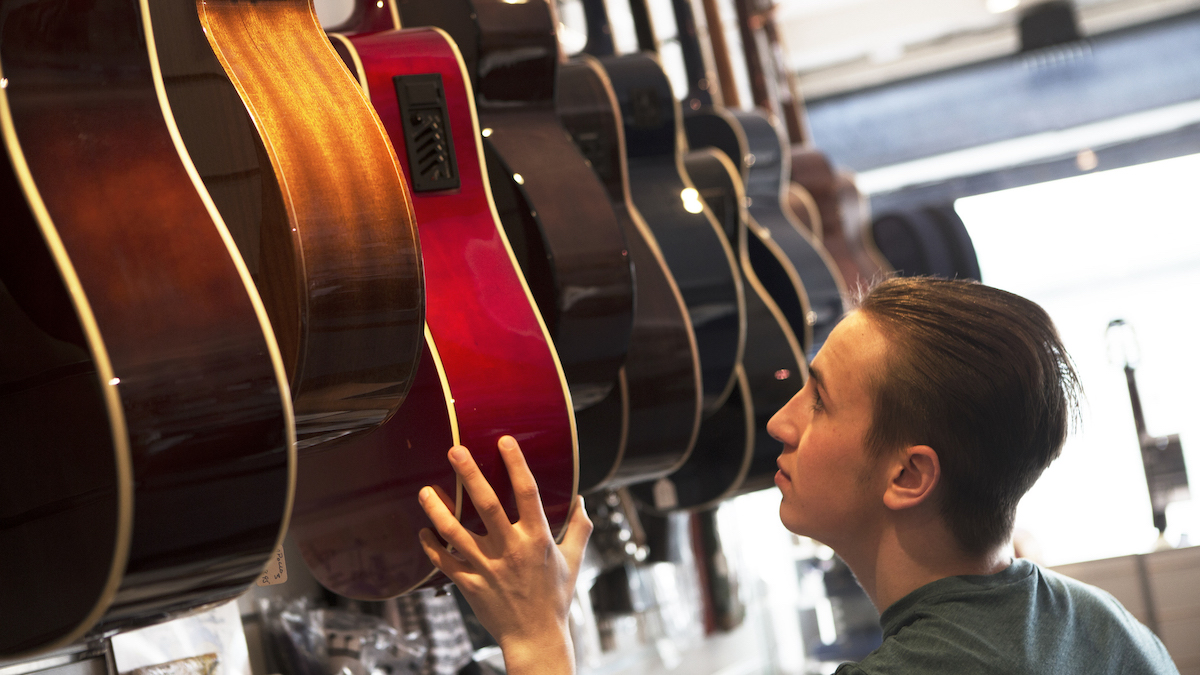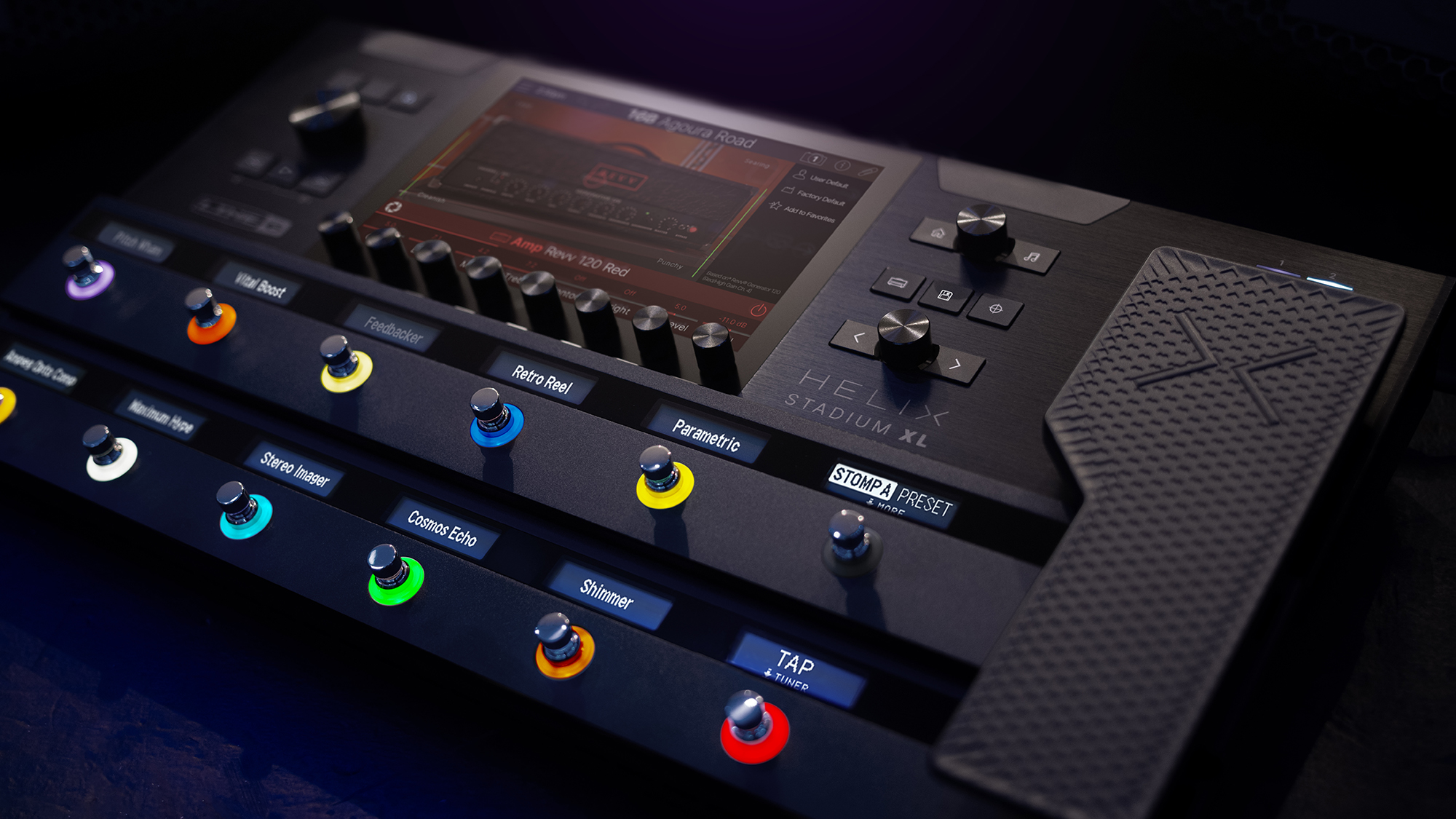Should you buy new or second-hand for your first acoustic guitar?
We weigh up the pros and cons of new vs second-hand acoustic guitars and what first-time buyers should consider

When it comes to buying your first acoustic guitar, you're likely considering many factors. What body shape should I go for? Do I need an electro-acoustic? Will the strings ever stop nipping my fingers? Once you’ve gotten over those initial troubles you should consider whether to go for a brand-new acoustic or a second-hand model. For total clarity, a second-hand guitar has had a previous owner, meaning it's not brand new and has been played before. For many players, old and new, second-hand is an incredibly appealing option.
Buying a second-hand guitar is a bit like picking up a used car. There are plenty of official retailers and private sellers offering second-hand options, and just because a previous owner has put a few miles on the clock doesn’t mean it’s not still a joy to drive. Plus, your first car was most likely second-hand, so why shouldn’t your acoustic guitar be?
Well, there are obvious benefits of going second-hand such as saving a bit of money, but also like buying used cars, there are some details that you need to pay attention to. It’s important to know what’s going on under the hood. So, today we’re going to explore the pros, cons, potential pitfalls, and what to look out for when choosing between a new or second-hand acoustic guitar.
Buying a second-hand acoustic guitar: the pros
So, what are the benefits of opting for a second-hand acoustic guitar? Well, money talks, and second-hand models typically cost less than the exact same model when new. For you bargain-savvy punters out there, this will be incredibly appealing. If you're comfortable with the idea of your guitar having had a previous owner, you can save yourself a few bucks.
Moreover, if you're just starting to learn guitar and want to minimize initial investment risk, a budget-friendly deal on a second-hand acoustic can be a practical choice. Not only that, if you've got a budget in mind, shopping second-hand can make your money go further. Since second-hand acoustic guitars are cheaper, you might find that the fancy new Martin you've been eyeing becomes a lot more doable if you buy it used.
Shopping second-hand can make your money go further
Although not for everyone, one of the biggest charms of second-hand guitars is their history and mojo. Instruments are best when they inspire, and there’s an undeniable aura around many older instruments that make you want to play, or even inspire a new song from somewhere you didn’t expect.
Also, many believe that acoustic guitars sound better with age. Unlike something quasi-spiritual like ‘aura’, there’s a bit more science behind this point. As an acoustic guitar ages, the wood’s cellular structure can change, which can lead to a more open and responsive guitar. Guitar brands try to replicate this on new acoustic guitars during a process called torrefaction, however, there’s nothing like the real thing.
All the latest guitar news, interviews, lessons, reviews, deals and more, direct to your inbox!
Buying a second-hand acoustic guitar: the cons
So if you can save a few bucks, make your money go further, and get a guitar that's already been played in, leaving you with a beautifully resonant guitar, why shouldn’t your first acoustic be second-hand? Well, just like buying a painted-over old car, there are a few potential pitfalls that may be lurking beneath the surface.
The last thing you want to do when buying your first acoustic is to pick up a dud. One of the most common issues with old acoustic guitars is severe belly bulging. This can be caused by years of tension on the bridge, being stored in unsuitable weather conditions, or over-tightening of the strings. Belly bulge can indicate broken bracing in the body or the wood being too full of moisture.
While a little bit of belly lift is normal on acoustic guitars, you’ll want to avoid a second-hand acoustic whose belly is protruding like Violet Beauregarde’s. When buying a brand new acoustic guitar, you’ll not have to worry about belly bulge as a retailer won’t accept selling a faulty acoustic.
Other issues like fret wear, an over-tightened truss rod, and dodgy electronics are certainly things you should be aware of when buying second-hand. If you're buying from a private seller, be sure to ask about these issues if they aren’t included in the listing. Extra photos are definitely worth requesting if you're buying online.
Extra photos are definitely worth requesting if you're buying online
Of course, if you’re buying from the second-hand online marketplace, it’s often difficult to determine the guitar’s quality, and most of the time, you can’t return the guitar if there’s an issue. Plus, if you’re new to buying acoustics, these problems may not be easy to spot.
Even if the second-hand acoustic you buy doesn’t initially come with any faults, you’ll unlikely be covered by any warranty if something goes wrong a few months down the line when buying from private sellers. However, more and more retailers are selling acoustic guitars and more often than not, they will offer their own warranty. If you can get your first acoustic guitar second-hand from a guitar shop that offers a warranty then you’re onto a winner.
Another thing to consider is the guitar’s age and the availability of replacement parts if something goes wrong. If the second-hand acoustic guitar you’re buying is over 25 years old, finding replacement preamps or pickups in an electro-acoustic may be a tricky task.
Other hardware like machine heads and bridge pins are fairly generic, so replacing those shouldn't be too much of an issue. However, specific components like electronics may pose more of a challenge if your dodgy second-hand acoustic goes down.
Buying a new acoustic guitar: the pros

And what about the new kids on the block? What pros does buying a brand-spanking new acoustic guitar offer? Well, firstly, if you buy your first acoustic guitar new from a retailer, the aftercare they offer will be invaluable. If you’re beginning your guitar journey, having a local guitar store to depend on for advice, care tips, and general support can be a lifesaver. Sure, YouTube is amazing for quick advice, but being able to go back to the place where you purchased your guitar in case of an emergency is an awesome lifeline to have.
Being able to go back to the place where you purchased your guitar in case of an emergency is an awesome lifeline
Of course, your new acoustic guitar will come with a manufacturer's warranty. Most manufacturers offer a one-year warranty as a minimum for new guitars, meaning if it was to go down eight months into playing, and it being a warranty fault, then it’ll get fixed or replaced for you. Unless you are buying from a retailer that offers their own warranty on a second-hand acoustic, then it’s unlikely that you’ll have one buying it used.
When buying a new guitar from a retailer, you know that what you are getting is going to be legitimate. There’s no having to worry that you’re buying a dud, or that you’re risking investing in something that is partially broken. The security of buying a new acoustic guitar, especially your first, is very comforting for a beginner in particular. Since places like instrument retailers are accountable to trading standards, the customer - a.k.a you - is protected against being ripped off.
If you buy your first acoustic guitar new, you’ll be the only owner of that instrument, preserving a special bond with it. Many guitarists will fondly recall buying their first acoustic – most of us still cherish ours. Having that exclusive connection with your instrument, being its sole owner, fosters a sentimental bond that grows over time. You may want to be the only one who has put blood, sweat and tears into your acoustic and if so, buying a new one is the way to go.
Buying a new acoustic guitar: the cons
Firstly, cost is a factor. New acoustic guitars tend to be more expensive than their second-hand counterparts because you're paying for that shiny, out-of-the-box experience. This also means you might miss out on the wide range of guitars available in the second-hand market, including quirky models, unbelievable bargains, and unique pieces that could fit your preferences perfectly.
Moreover, buying new might limit your budget and risk getting a guitar of lesser quality compared to what you could find second-hand. Additionally, if you're inspired by vintage guitars or particular models played by your guitar heroes, you may not find the exact match among current production lines. New purchases are often restricted to what's currently available in the manufacturer's catalog, narrowing your options significantly.
Conclusion
Quite frankly, the benefits of buying your first acoustic guitar new are simple; you’ll get a manufacturer's warranty, it’s unlikely that you’ll buy a dud, whatever retailer you buy it from will offer aftercare and you’ll be the only owner of an instrument that will (hopefully) grow to be a big part of your music journey. The negatives are that new acoustic guitars will cost more than their similar second-hand counterpart and you are restricted to whatever is currently in production.
Buying a second-hand acoustic, on the other hand, gives you the opportunity to snag an amazing deal, save you money, open up a plethora of different options from current to vintage and make your budget go further. However, the biggest risk you take in buying a second-hand acoustic is the possibility of buying a faulty guitar. You’ll probably not have a returns period buying from a private seller and the manufacturer’s warranty will be long gone.
Ross has been a music lover and guitar player since the age of 8. He has spent the five years since graduating from university working in music retail, selling guitars, amps and more. Ross is particularly interested in electric guitars, pedals and amplifiers and his current rig includes a trusty 2009 American Standard Stratocaster and Vox AC30S1 with a few Walrus Audio and Way Huge pedals in between.

